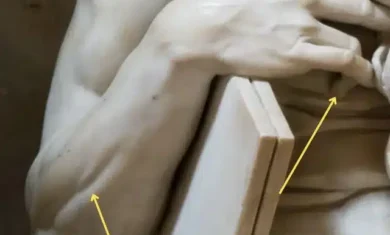I’ll admit it — I’m an RSS junkie. My Google Reader list currently has 616 feeds in it, and that’s actually down a bit now that I’ve spent some time removing items. Most of these are very useful — follow new comments on my blogs, find new material for my blogs, keep current on new technology and SEO ideas, etc. I also like to grab the comments RSS feed on blogs when I leave a comment and they don’t have e-mail notification available (why do sites do that?) so I can follow up with other commentors.
However, the problem is pretty obvious. 616 feeds generate a LOT of items every day. Like most things GTD, the highest efficiency comes when you can get it to zero as often as possible. The concept of “inbox zero” has been huge for me, and I’ve always tried to maintain “Reader zero” as well. So how do I do it?
Skim. I know what kind of stuff I’m looking for, so I browse quickly. When I’m on my computer, I can use the “j” key in Reader to jump to the next item. I’ll burn through a lot of them pretty quickly. Sites like Digg generate 99% garbage, but I keep it in there for the rare gems that come through.
Keep it at zero. This is critical. It’s overwhelming to have 1000+ unread items, but it’s not so bad to have 150. Try to zero it every chance you get.
Star important items. This follows the basic GTD itea of collect/process. I don’t deal with any items while I’m going through the list. I may read a few sentences to see if it’s worth digging into, but I don’t read any long entries while I’m clearing the list. If an item is worth looking at later (blog spam to clean up, SEO idea to read about, idea for a blog entry to write) I tag it with a star in Google Reader. Other RSS readers likely have similar options. When I’m done, if time allows, I’ll start working through the starred items. As I finish each item (read it, blog about it, whatever) I simply un-star it and it disappears.
Read on the go. The iPhone version of Reader is excellent. It’s simple, but it gets the job done. I can peruse items, star them, and mark them as read. David Allen talks about trying to maximize the little blocks of space in your life, and this is a BIG way I do that. By reading and starring items thoughout the day, I have less to dig through at night and I can start actually working on the items of interest. Again, other readers and other phones will likely allow this to happen too, but I love the Reader/iPhone combo.
 Using the “trends” feature in Reader (shown to the right), you can see how my reading pattern tends to go. I get completely caught up first thing in the morning (between 6-7am), then just maintain throughout the day. By the evening when I get to work, I have very little reading that needs to be done. This allows me to actually work during my available work time — novel concept!
Using the “trends” feature in Reader (shown to the right), you can see how my reading pattern tends to go. I get completely caught up first thing in the morning (between 6-7am), then just maintain throughout the day. By the evening when I get to work, I have very little reading that needs to be done. This allows me to actually work during my available work time — novel concept!
Any other tips for keeping up with your RSS deluge so you don’t get buried?




These are good ideas to follow.. The title picked my attention immediately.. I am exactly like what he says in here.. I too strive to achieve “Inbox zero” and “Reader Zero”. I always have 1000+ unread items across 75 feeds. I would like to make one addition to this list in that you should do a MARK ALL AS READ as soon as you read a particular feed. This helps keep the total count of unread articles.
My main – and highly recommended – system for keeping a comfortable amount of items to read/read is . . . . unsubscribe from Digg, Slashdot, Flickr friends photos etc. Huge content generators which, in all fairness, produce nothing you don’t expect.
Digg – if it’s good enough, it’ll pop up somewhere else- a tweet, a friend. Let others do the work for you. /.- I just don’t bother. Arguing on the internet…. 🙂
Flickr – keep it to real friends- don’t add someone who add’s 50 photos a week- that’s 1000 for 20 friends. Not worth it. Again, if it’s good or important it will find you.
Finally, check what you’re subscribed to. BBC world news, tech, int, science, health AND sport? No one needs to know every story in the news. I did something amazing this week – I spent 20 seconds on the bbc news page. No trawling through the news stream, not reading snippets, and no loss of photos. Ditch news sites and just visit the homepage once a day.